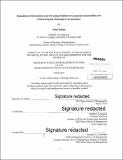| dc.contributor.advisor | Matthew Amengual. | en_US |
| dc.contributor.author | Dalmia, Nihar | en_US |
| dc.contributor.other | Sloan School of Management. | en_US |
| dc.date.accessioned | 2014-09-19T21:47:43Z | |
| dc.date.available | 2014-09-19T21:47:43Z | |
| dc.date.copyright | 2014 | en_US |
| dc.date.issued | 2014 | en_US |
| dc.identifier.uri | http://hdl.handle.net/1721.1/90235 | |
| dc.description | Thesis: S.M. in Management Studies, Massachusetts Institute of Technology, Sloan School of Management, 2014. | en_US |
| dc.description | Cataloged from PDF version of thesis. | en_US |
| dc.description | Includes bibliographical references (pages 75-78). | en_US |
| dc.description.abstract | in an age where organizations across industries and sectors are placing increasing importance on sustainability, leaders are looking for more accurate information to guide their decisions on sustainability-related issues. Analytics and big data have been recognized as valuable tools to advance sustainability efforts both at a community as well as an organizational level. In the last decade specially, tools have been adopted by many organizations to gather and analyze data relevant to sustainability, to gain insights through business intelligence tools and to extend visibility through the supply chain. However, with opportunities come challenges and questions remain about the validity of the business case for sustainability analytics. As sustainability analytics gains momentum, understanding, identifying and addressing the challenges that come along with its adoption is going to be critical for companies to be well prepared to take their sustainability efforts forward. This thesis evaluates the emergence of sustainability analytics and the business case for its adoption, identifies the challenges that hinder its success and points towards shifts in current approaches to overcome those obstacles. Further, two of the assumptions about big data are that organizations are 'swimming in a sea' of data and thus the challenges lie in finding valuable insights, and that challenges associated with big data are primarily technical in nature. This work investigates these claims from the perspective of sustainability analytics and aims to identify the opportunities and challenges that organizations must be aware of to maximize its sustainability efforts using analytics. Various cases and interviews are cited to support the analysis and arguments presented in this paper. Chapter 1 opens the paper with a discussion of the link between sustainability and analytics and the emergence of sustainability analytics. Chapter 2 investigates the expected and realized value based on the business case(s) for sustainability analytics. Chapter 3 evaluates the challenges that can lead to the failure in realization of this value and addresses common assumptions that contribute to this failure. Chapter 4 discusses and recommends a shift in the finance function as a key ingredient to the success of sustainability analytics. The paper concludes with a proposed strategic framework in Chapter 5 that organizations must consider in their pursuit of overcoming the challenges of successfully adopting sustainability analytics.. | en_US |
| dc.description.statementofresponsibility | by Nihar Dalmia. | en_US |
| dc.format.extent | 78 pages | en_US |
| dc.language.iso | eng | en_US |
| dc.publisher | Massachusetts Institute of Technology | en_US |
| dc.rights | M.I.T. theses are protected by copyright. They may be viewed from this source for any purpose, but reproduction or distribution in any format is prohibited without written permission. See provided URL for inquiries about permission. | en_US |
| dc.rights.uri | http://dspace.mit.edu/handle/1721.1/7582 | en_US |
| dc.subject | Sloan School of Management. | en_US |
| dc.title | Evaluation of the business case for using analytics for corporate sustainability and overcoming the challenges in its execution | en_US |
| dc.type | Thesis | en_US |
| dc.description.degree | S.M. in Management Studies | en_US |
| dc.contributor.department | Sloan School of Management | |
| dc.identifier.oclc | 890376898 | en_US |
